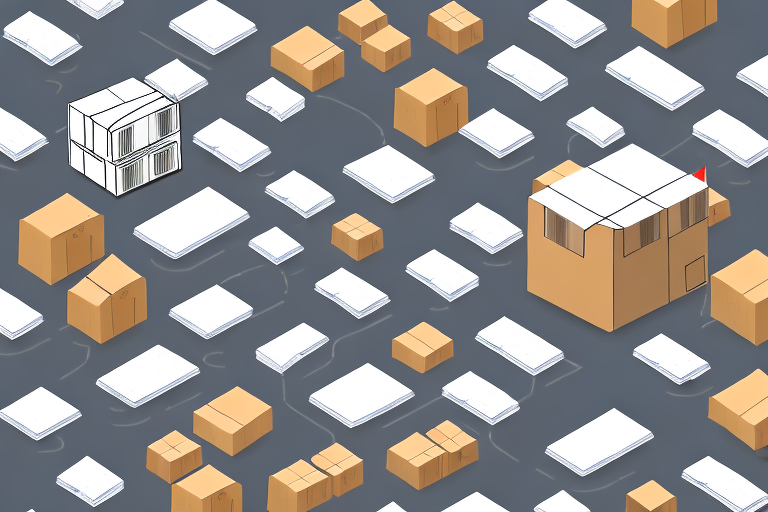The Benefits of Outsourcing Logistics: Maximizing Efficiency and Cost Savings
Outsourcing logistics has become a strategic imperative for businesses aiming to enhance efficiency and reduce costs. By partnering with specialized logistics providers, companies can leverage expertise, advanced technologies, and scalable solutions that drive operational excellence. This article delves into the key advantages of logistics outsourcing, offers guidance on selecting the right partner, explores the role of technology, and examines future trends shaping the industry.
Advantages of Outsourcing Logistics
Cost Savings and Operational Efficiency
One of the primary benefits of outsourcing logistics is significant cost reduction. According to a Forbes article, companies can save up to 30% on logistics expenses by eliminating the need for in-house warehousing, transportation, and inventory management. Logistics providers achieve these savings through economies of scale, optimized routing, and advanced supply chain management systems.
Access to Expertise and Advanced Technology
Logistics providers bring specialized knowledge and access to cutting-edge technologies such as real-time tracking, warehouse automation, and predictive analytics. This expertise enables businesses to streamline their supply chains, reduce lead times, and enhance overall service quality.
Scalability and Flexibility
Outsourcing logistics offers unparalleled scalability, allowing businesses to adjust their logistics operations in response to fluctuating demand. This flexibility is crucial for managing seasonal peaks or expanding into new markets without the constraints of fixed infrastructure.
Choosing the Right Logistics Partner
Evaluating Provider Expertise and Track Record
When selecting a logistics partner, it's essential to assess their industry experience, track record, and ability to deliver customized solutions. Look for providers with a proven history of reliability and excellence in service delivery. Requesting references and reviewing case studies can provide valuable insights into their performance.
Geographic Coverage and Network Strength
Consider the logistics provider's geographic reach and network strength. A partner with a robust global network can facilitate seamless international operations and efficient cross-border logistics. Proximity to key markets can also reduce transportation costs and improve delivery times.
Technology Integration and Capabilities
Ensure that the logistics provider utilizes advanced technologies that integrate with your existing systems. Features like real-time tracking, inventory management, and automated reporting are essential for maintaining visibility and control over your supply chain.
Leveraging Technology in Logistics Outsourcing
Transportation Management Systems (TMS)
TMS solutions optimize routing, manage transportation costs, and enhance delivery performance. By leveraging TMS, logistics providers can offer more efficient and cost-effective transportation options.
Warehouse Management Systems (WMS)
WMS technology improves warehouse operations through automation, real-time inventory tracking, and optimized storage solutions. This leads to increased accuracy, reduced errors, and faster order fulfillment.
Predictive Analytics and Artificial Intelligence
Advanced analytics and AI enable logistics providers to forecast demand, identify potential disruptions, and implement proactive measures. This predictive capability enhances supply chain resilience and ensures smoother operations.
Best Practices and Avoiding Common Pitfalls
Establish Clear Communication Channels
Maintaining open and transparent communication with your logistics partner is crucial for success. Regular updates and clear expectations help prevent misunderstandings and ensure alignment with business goals.
Define Key Performance Indicators (KPIs)
Setting measurable KPIs allows businesses to monitor the performance of their logistics provider. Metrics such as on-time delivery rates, order accuracy, and cost savings provide a clear picture of the partnership's effectiveness.
Avoiding Hidden Costs and Ensuring Transparency
Carefully review contracts to identify any hidden costs or fees. Transparent pricing models and clear contractual terms help prevent unexpected expenses and ensure a mutually beneficial partnership.
Future Trends in Logistics Outsourcing
Embracing Blockchain Technology
Blockchain offers enhanced security, transparency, and traceability in supply chains. Its adoption in logistics outsourcing is expected to grow, providing immutable records and reducing fraud risks.
Sustainability and Green Logistics
Environmental sustainability is becoming a priority for logistics providers. Green logistics practices, such as using electric vehicles and optimizing routes for fuel efficiency, are gaining traction as businesses prioritize eco-friendly operations.
Integration of Internet of Things (IoT)
IoT devices enhance supply chain visibility by providing real-time data on shipments, warehouse conditions, and equipment performance. This integration leads to more informed decision-making and improved operational efficiency.
Case Studies: Successful Logistics Outsourcing Implementation
Global Manufacturer Reduces Costs and Enhances Efficiency
Company A, a leading global manufacturer, outsourced its logistics operations to a third-party provider, resulting in a 20% reduction in transportation costs and a 30% improvement in delivery times. Leveraging the provider's advanced technology and expertise, Company A achieved greater supply chain visibility and operational efficiency.
Regional Retailer Improves Inventory Management and Delivery Performance
Company B, a regional retailer, partnered with a logistics provider to handle warehousing and distribution. This collaboration led to a 15% decrease in inventory holding costs and a 25% increase in on-time deliveries. By adopting best practices and utilizing the provider's technology, Company B enhanced its overall logistics performance.
Conclusion
Outsourcing logistics offers a multitude of benefits, including cost savings, increased efficiency, and access to advanced technologies. By carefully selecting the right logistics partner and implementing best practices, businesses can optimize their supply chains and achieve sustainable growth. As the logistics landscape continues to evolve, embracing future trends and leveraging innovative solutions will be key to maintaining a competitive edge.




















